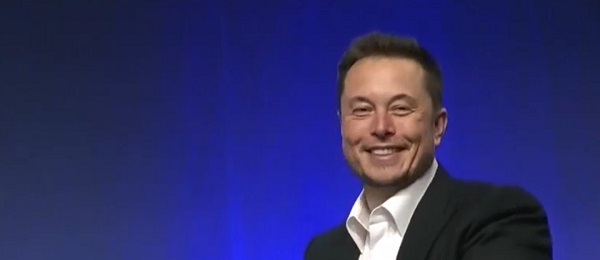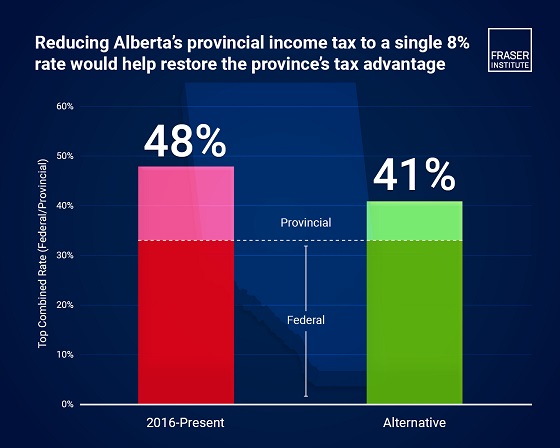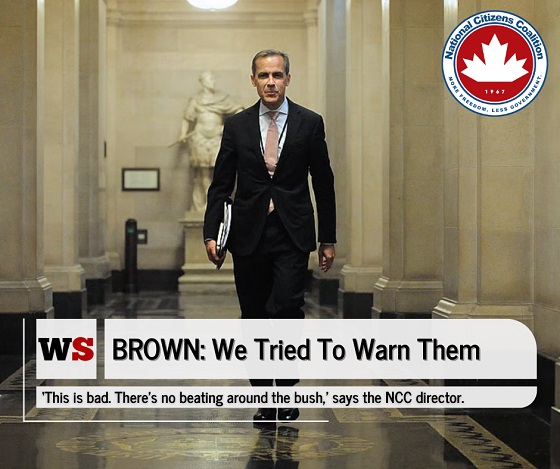Business
Indigo creates temporary website for browsing after cyberattack

By Tara Deschamps in Toronto
Indigo Books & Music Inc. has created a temporary website for its customers to browse for books and gifts after a cyberattack halted the company’s online operations last week.
In a notice posted to the new site Friday titled “shop in store, window-shop online,” the Toronto-based retailer said the temporary website only allows for browsing and it is still not possible to make Indigo purchases online.
The company did not offer a timeline for when its website or app, which is also unavailable, might return.
“We are working hard to provide the seamless online shopping experience that our customers have come to expect,” the note read.
“Please check back daily for updates and progress.”
The temporary website was launched more than a week after Indigo first notified customers of a “cybersecurity incident” that left it unable to process electronic payments, including through its website.
When the incident began Feb. 8, Indigo was only able to process purchases made in store with cash, but some of its services, including credit and debit payments and some return capabilities, have since been restored.
The company has said it immediately engaged third-party experts to investigate and resolve the matter, but has still not explained the nature of the incident or what caused it.
“Our investigation is under way but not yet complete,” it added Friday.
The incident has placed many of Indigo’s sales in jeopardy as customers must purchase items in brick-and-mortar stores and were only able to make purchases in cash for much of the outage. Though debit and credit cards are now accepted at stores, the overall impact on Indigo’s sales will be felt more deeply the longer the other problems persist.
Its investigation has so far not found any instances of customer credit or debit cards being compromised, but it has not completely ruled such a breach out.
“If at any point in the future we determine that personal data has been compromised, we commit to contacting those impacted directly,” Indigo wrote in its Friday note.
The company has also assured customers that points distributed through its Plum loyalty program have not been impacted, but redemptions, sign-ups, or renewals are not currently possible.
However, customers can still receive Plum discounts for purchases made in store while the incident is ongoing. Points will be issued at a future date as long as shoppers retain their receipts.
Plum points typically expire when a customer doesn’t make a qualifying purchase within 12 months. Shoppers with points set to expire in February, will see their expiration date extended to March 31, Indigo said.
The company has also extended the 30-day exchange or return timeline for purchases that had to be brought back between Feb. 8 and 15. Customers with such items will now have until Feb. 21 to make returns.
The retailer remains unable to cancel orders placed before the incident, but said once the issue is resolved, it will provide refunds. It is also unable to offer order status updates or estimated delivery timelines for people awaiting shipments from Indigo.
This report by The Canadian Press was first published Feb. 27, 2023.
Companies in this story: (TSX:IDG)
Business
Elon Musk’s Time At DOGE Comes To End


From the Daily Caller News Foundation
By Hailey Gomez
Billionaire Elon Musk announced Wednesday on X that his time working in the Department of Government Efficiency (DOGE) has officially come to an end.
Shortly after his 2024 election win, President Donald Trump appointed Musk to lead DOGE and fulfill his campaign vow of gutting wasteful government spending. In a post on X, however, Musk wrote that his “scheduled time” working as a special government employee has ended
“As my scheduled time as a Special Government Employee comes to an end, I would like to thank President @realDonaldTrump for the opportunity to reduce wasteful spending. The @DOGE mission will only strengthen over time as it becomes a way of life throughout the government,” Musk wrote.
Semafor’s White House correspondent Shelby Talcott later said on X that a White House official confirmed the end of Musk’s time at the administration and that the offboarding would begin Wednesday evening.
Since working to help Trump into office, Musk has helped the administration bring change to Washington D.C. In February, Musk and his DOGE team began to receive massive pushback from Democrats after announcing the cut of the United States Agency for International Development (USAID), leading Democrats and others to protest against the billionaire and his other companies, including Tesla.
During an interview with Fox News’ Bret Baier in March, Musk acknowledged that he and the DOGE team were on a timeline with the administration, technically having a total of 130 days as a “special government employee.” Musk told the Fox host at the time that he believed he and his team would accomplish “most of the work required to reduce the deficit by a trillion dollars within that time frame.”
“We are cutting the waste and fraud in real time. So every day like that passes, our goal is to reduce the waste and fraud by four billion dollars a day, every day, seven days a week, and so far we are succeeding,” Musk said.
DOGE came under the spotlight after USAID reports revealed the program wasted billions in taxpayer-funded dollars, some of which had a high risk of landing in the Taliban’s hands and also aiding an organization linked to the Wuhan Institute of Virology.
While Musk had an initial target to slash as much as $2 trillion from federal spending, the former DOGE member said in April that the team would scale back their goals and instead target $150 billion in federal savings for fiscal year 2026. During that month, Musk also announced he was stepping back as DOGE’s leader, adding his involvement would drop “significantly” in May as the bulk of his reform efforts are “mostly done.”
By May, the billionaire said at the Qatar Economic Forum that he would also pull back his political donations.
“In terms of political spending, I’m going to do a lot less in the future,” Musk said. “I think I’ve done enough.”
“If I see a reason to do political spending in the future, I will do it,” Musk said. “I do not currently see a reason.”
In a recent interview on Sunday, Musk criticized Trump’s “big, beautiful bill” and stated his concerns about how the package could potentially increase budget deficits.
“I was disappointed to see the massive spending bill, frankly, which increases the deficit, not just decreases it, and undermines the work that the DOGE team is doing,” Musk said.
Business
Canadians Will Pay For The Federal Budget Delay

From the Frontier Centre for Public Policy
In his latest commentary, Lee Harding slams the Carney government for skipping the federal budget while plowing ahead with tax cuts and spending sprees. With no clear plan and ballooning deficits, Canadians wonder how these promises will be paid for—hint: more debt. Harding warns that Ottawa’s “figure it out later” approach is reckless, echoing past fiscal blunders that still haunt taxpayers today. Brace yourselves—this bill is coming.
The Carney government skipped the budget, but not the spending. And you’re on the hook
What’s better?
To spend and save without a plan, or to do so with accurate information and a focused strategy? The federal government has chosen the former, and one thing is certain: Canadians are going to pay.
Finance Minister François-Philippe Champagne announced on May 14 that the newly elected Carney government wouldn’t table a spring budget, opting instead to take things “step-by-step.” Parliament will sit until June 20, but aside from the throne speech, the only stated priority is to lower the first income tax bracket from 15 per cent to 14. That would slightly lower federal income taxes for most working Canadians by reducing the rate on the first $55,000 of income, saving up to about $550 a year.
That sounds good—until you ask how it’s being paid for. Without a budget, Canadians have no clear picture of the trade-offs or long-term costs.
Tabling a budget is the government’s formal presentation of its financial plan to Parliament. It outlines spending priorities, revenue forecasts and deficit projections for the year ahead. Skipping this step is no small matter.
“Cut taxes first, figure out how to pay later” isn’t the worst way to roll the dice, but it is far from the best. And we already know how Ottawa will cover the shortfall: more deficit spending. Canada hasn’t seen a balanced federal budget in nearly 20 years, and there’s no sign of one on the horizon.
Canadians will repay this tax cut with interest, sacrificing tomorrow’s services for today’s soundbites. This approach lacks fiscal prudence; doing it without a budget only compounds the recklessness.
Ottawa rarely fails to table a budget. The last time was during the height of the COVID pandemic in 2020. The results were disastrous: public debt surged and remains with us today. That was an unprecedented global crisis. There is no such emergency in 2025—only political calculation.
Carney claimed during the election campaign that proposed U.S. tariffs placed Canadians in “the greatest crisis of our lifetimes.” Yet, days later, he stood alongside U.S. President Donald Trump at the White House, smiling for photos and flashing a thumbs-up. For perspective, imagine Volodymyr Zelenskyy flying to Moscow to do the same with Vladimir Putin.
Some may argue the spring election left too little time before summer to draft a budget. But that doesn’t hold water. The Harper Conservatives won a majority on May 2, 2011, and still tabled a budget that spring. Carney’s cabinet includes many Trudeau-era veterans, and the Department of Finance remains staffed by experienced civil servants. The Liberals can and should produce a budget.
Parliament has even sat in July to pass urgent legislation. In 2020, MPs returned on July 20 to approve the Canada Emergency Wage Subsidy. In 1988, they stayed until July 7 to pass the Canada–U.S. Free Trade Agreement Implementation Act. There is precedent—and there is time.
Even when the Liberals do present budgets, they’ve only deepened Canada’s fiscal hole. On Dec. 31, 2015, the net federal debt stood at $693.8 billion. By the end of 2024, it had climbed to $953.9 billion—an increase of 37.4 per cent in just nine years. These debts will likely never be repaid.
A 2022 Fraser Institute study estimated that a 16-year-old Canadian will pay $29,663 in income taxes over her lifetime just to cover interest on the federal debt—money that won’t fund services but simply keep creditors happy.
The Liberals’ current platform is thin on discipline. It includes income tax cuts worth $4.2 billion and a GST exemption on first-time home purchases, costing $383 million. But these are overshadowed by broader spending.
Last year’s budget outlined $538 billion in spending, with $40 billion funded through borrowing. By fall, that deficit had grown past $60 billion. This year’s platform will make matters worse by $46.8 billion, even after factoring in $20 billion in retaliatory tariff revenues.
If the government struggles to follow its own budget when it sets one, how much damage might it do without one? Plenty.
Parliament must still approve any new spending through supplementary estimates—requests for additional funds beyond what’s already authorized. But without the context of a full budget, MPs will be asked to approve billions in spending without a clear picture of what’s affordable.
What would be refreshing, though unlikely, is for non-Liberal MPs to approve only measures that strengthen the Canadian economy, military and policing. They could reject everything else and argue that responsible spending can’t occur without a formal financial plan.
Governments should manage national finances like a responsible household: with a clear budget and the discipline to live within their means. Unfortunately, the Carney government appears unwilling—or unable—to do either.
Lee Harding is a research fellow with the Frontier Centre for Public Policy.
-

 COVID-192 days ago
COVID-192 days agoCDC no longer recommending COVID shots for healthy pregnant women, children
-

 Alberta2 days ago
Alberta2 days agoAlberta providing additional $7 million to Grande Prairie to help transition to municipal police service
-

 Alberta2 days ago
Alberta2 days agoMoving to single 8% provincial personal income tax rate would help restore the Alberta Advantage
-

 COVID-191 day ago
COVID-191 day agoDr. Malone: Trump admin takes step in right direction with new COVID shot guidance
-

 Alberta1 day ago
Alberta1 day agoOttawa’s bold energy promises face skepticism in Alberta
-

 Health2 days ago
Health2 days ago21 Canadian doctors demand review of transgender drugs, surgeries for children
-

 Carbon Tax2 days ago
Carbon Tax2 days agoCarney picks up Trudeau’s net-zero wrecking ball
-

 2025 Federal Election2 days ago
2025 Federal Election2 days agoNDP’s collapse rightly cost them official party status






